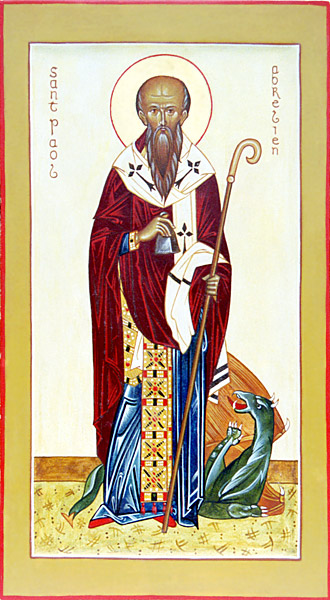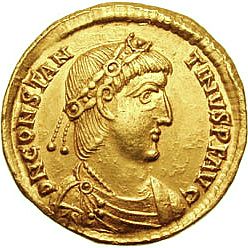THE DARK AGES
THE LAND WAS DIVIDED AND WITHOUT A KING
(CUE THE WAGNER)

(click here to Camelot-size)
=
BOOK I: THE HISTORY OF BRITAIN
PREFACE
1, 2, 3
4, 5, 6
7, 8, 9
BOOK II: THE GROANS OF THE BRITONS
1, 2, 3
4, 5, 6
7, 8, 9
BOOK III: THE TWELVE BATTLES OF ARTHUR
1, 2, 3
4, 5, 6
7, 8, 9
BOOK IV: THE THREE COURTS OF ARTHUR
1, 2, 3
4, 5, 6
7, 8, 9
BOOK V: THE SPOILS OF CALVARY
1, 2, 3
4, 5, 6
7, 8, 9
BOOK VI: THE RUIN AND CONQUEST
1, 2, 3
4, 5, 6
7, 8, 9
THE EPISTLE OF PAUL AURELIAN
EPILOGUE
=
(CUE THE WAGNER)

(click here to Camelot-size)
=
BOOK I: THE HISTORY OF BRITAIN
PREFACE
1, 2, 3
4, 5, 6
7, 8, 9
BOOK II: THE GROANS OF THE BRITONS
1, 2, 3
4, 5, 6
7, 8, 9
BOOK III: THE TWELVE BATTLES OF ARTHUR
1, 2, 3
4, 5, 6
7, 8, 9
BOOK IV: THE THREE COURTS OF ARTHUR
1, 2, 3
4, 5, 6
7, 8, 9
BOOK V: THE SPOILS OF CALVARY
1, 2, 3
4, 5, 6
7, 8, 9
BOOK VI: THE RUIN AND CONQUEST
1, 2, 3
4, 5, 6
7, 8, 9
THE EPISTLE OF PAUL AURELIAN
EPILOGUE
=
Again?
The final time.
You've done this twice before...
And this will be the definitive version of the King Arthur saga which I wish to tell.
For people fresh to this concept, what's the premise of this retelling of Arthurian legend?
I purport that Paulinus Aurelianus, an (adopted) grandson of Arthur - a link I have fabricated for the purposes of this TL - decided to write about his family's history to counter Gildas's accusations of moral degeneracy, and that this account was unearthed many centuries later
My version of Arthur and his exploits is based on the idea that along with Ambrosius Aurelianus, there was a Romano-British war leader known as Arthur who marked one of the final periods of local resistance against Anglo-Saxon settlement somewhere around the turn of the 6th century, and that his actions have become transformed by legend to the figure we know nowadays.
What can first-time readers expect?
This will be an attempt to synthesise some of the early accounts of the pseudo-historical Ambrosius Aurelianus and "King" Arthur such as Gildas's On the Ruin and Conquest of Britain, Historia Brittonium, the Annales Cambrae, the Welsh Triads, several Welsh poems, and the various accounts of 6th-century saints' lives, along with William of Malmesbury's and Geoffrey of Monmouth's accounts of British history to a smaller extent.
So no Holy Grail, Lancelot, Camelot or...
I might include putative "origins" for some of these through passages ripe for misinterpretation, but nothing which outright contradicts the above sources. Things that get a first mention in Geoffrey of Monmouth or William of Malmesbury get a free pass, as it can be argued that things in this account "inspired" them (otherwise the plot would be very dry and boring).
There are certain passages inspired by Percival/Peredur and some version of Tristan and Isolde but feel free to ignore them if they suspend disbelief too much.
What can returning readers expect?
Even more consistent Latinisations, a much beefier narrative overall, and no or few mentions of figures not mentioned before Historia Regum Britanniae to give a better idea of how people writing in that time really understood/misunderstood history.
An advent TL?
From December 1st to Christmas Day, I'll have 25 days to deliver all 60 segments of this TL (minimum 3 at a time, because that's how it's structured), so you'll get an update practically every day.
Very well, let's get started!
Thanks, me. Want to weigh in, Arthur?
The final time.
You've done this twice before...
And this will be the definitive version of the King Arthur saga which I wish to tell.
For people fresh to this concept, what's the premise of this retelling of Arthurian legend?
I purport that Paulinus Aurelianus, an (adopted) grandson of Arthur - a link I have fabricated for the purposes of this TL - decided to write about his family's history to counter Gildas's accusations of moral degeneracy, and that this account was unearthed many centuries later
My version of Arthur and his exploits is based on the idea that along with Ambrosius Aurelianus, there was a Romano-British war leader known as Arthur who marked one of the final periods of local resistance against Anglo-Saxon settlement somewhere around the turn of the 6th century, and that his actions have become transformed by legend to the figure we know nowadays.
What can first-time readers expect?
This will be an attempt to synthesise some of the early accounts of the pseudo-historical Ambrosius Aurelianus and "King" Arthur such as Gildas's On the Ruin and Conquest of Britain, Historia Brittonium, the Annales Cambrae, the Welsh Triads, several Welsh poems, and the various accounts of 6th-century saints' lives, along with William of Malmesbury's and Geoffrey of Monmouth's accounts of British history to a smaller extent.
So no Holy Grail, Lancelot, Camelot or...
I might include putative "origins" for some of these through passages ripe for misinterpretation, but nothing which outright contradicts the above sources. Things that get a first mention in Geoffrey of Monmouth or William of Malmesbury get a free pass, as it can be argued that things in this account "inspired" them (otherwise the plot would be very dry and boring).
There are certain passages inspired by Percival/Peredur and some version of Tristan and Isolde but feel free to ignore them if they suspend disbelief too much.
What can returning readers expect?
Even more consistent Latinisations, a much beefier narrative overall, and no or few mentions of figures not mentioned before Historia Regum Britanniae to give a better idea of how people writing in that time really understood/misunderstood history.
An advent TL?
From December 1st to Christmas Day, I'll have 25 days to deliver all 60 segments of this TL (minimum 3 at a time, because that's how it's structured), so you'll get an update practically every day.
Very well, let's get started!
Thanks, me. Want to weigh in, Arthur?
Last edited:


